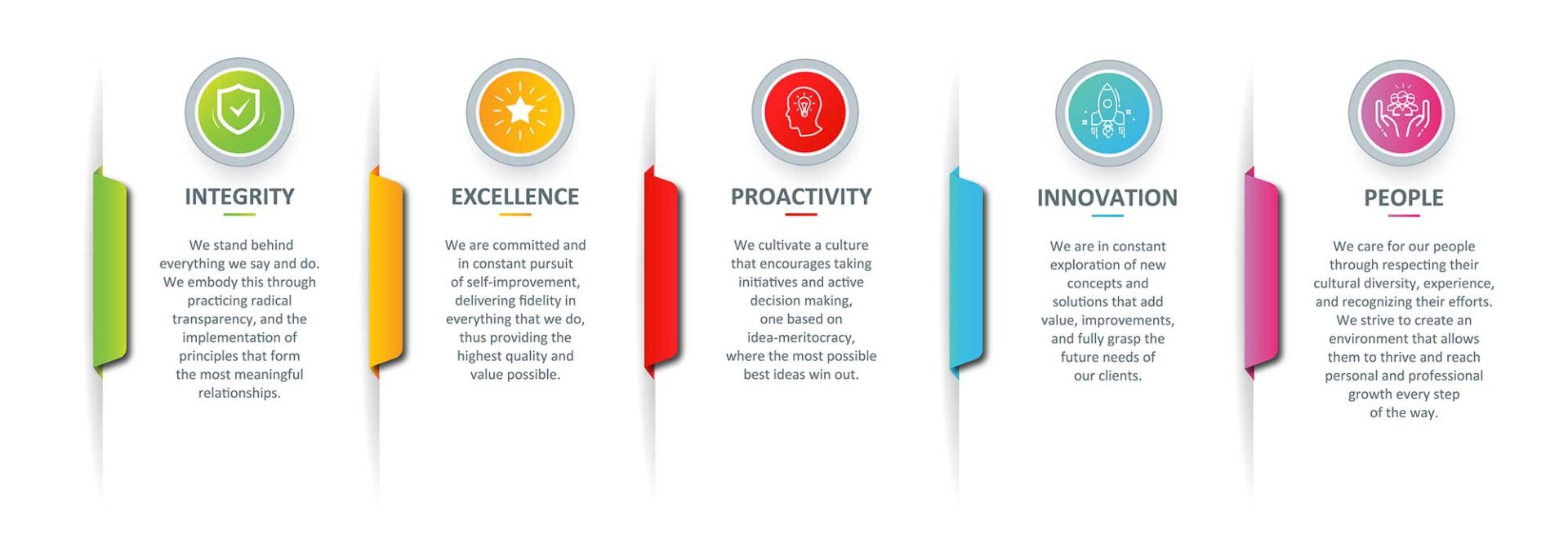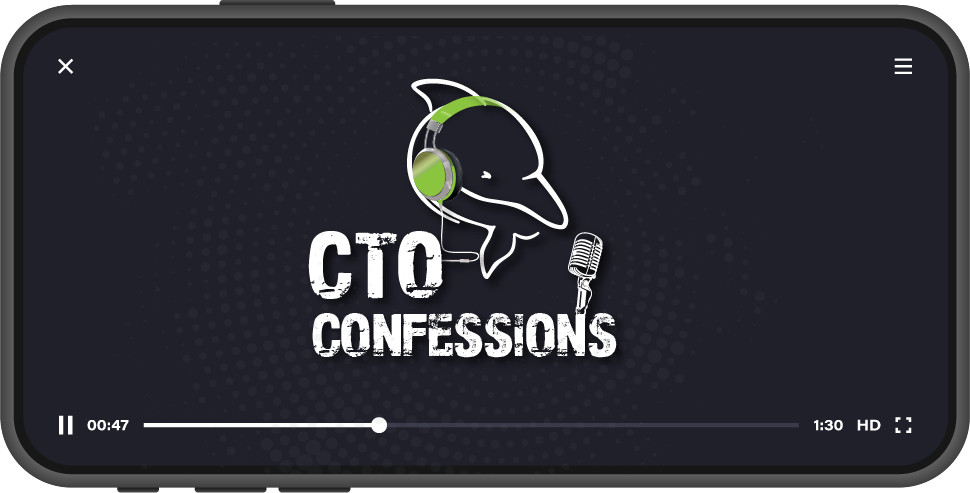ITL: What’s going on with IT Labs at the moment? You have some expansion news. Where’s that to this time?
Banne: We are expanding to Serbia as we speak. We’ve been planning this for a while, so we’re excited to take the next steps to grow as a company.
ITL: Why Serbia exactly?
Banne: Well, Serbia is known to have amazing talent, some of the best education in the region, and immense experience in the IT industry. These were the initial reasons why we landed on Serbia as the next logical step. Both the culture and language are similar to Macedonia, where our biggest development hub is right now. Also, Serbia has had its fair share of experience in the outsourcing field for some time. Putting all that aside, in our opinion, the most important thing about Serbia is that they have the right culture. Again, very similar to that of Macedonia, and it’s a factor that will help us expand quicker.
ITL: Does the Serbian IT community know of IT Labs? Why don’t you tell the companies story to those who are new to it?
Banne: Sure! The story of IT Labs started back in 2005 in Los Angeles in the heyday of web 2.0 with Myspace, Facebook, YouTube, etc. At the very beginning, we were working with many startups. It was a lot of fun, and we learned a lot. But then we decided to make a real company out of IT Labs. We were seen as a software company that was developing software. But as time went by, we started uncovering our true value and what makes us different in the market. It wasn’t that we did software, java, or angular; it was how we approach people and help them grow. We then started our internal educational academy and started training our own people, to a point where 60% of our workforce was trained internally. And that is an amazing thing. To be able to train and nurture your talent is the ultimate goal.
With this approach, we expanded faster. Offering a phenomenal service to our customers, primarily mid-market companies (described in the US as 200 to 5,000 employees) mostly owned by private equity firms or family offices.
ITL: Every success story has an angle. What’s yours? What is your strongest suit?
Banne: I think our strongest suit is the ability to create high-performing teams. People are our strongest suit. Even though we are a technology company, we’re not necessarily defined by a technology stack or a specific programming language. What we’ve achieved over the years is the ability to create a process and a mechanism that generates high-performing teams for clients. A team that can perform way over the estimated deliverable means that at the end of the cycle, we compare estimate versus actual at what was delivered. We are known to guarantee our deliverables, guaranteeing both time, budget, and quality.
ITL: A truly successful business is usually driven by values. Is IT Labs among them?
Banne: Yes, we are among them. We are very devoted to our values. We live them as guidelines when functioning as a team. Our core values being integrity, excellence, productivity, innovation, and of course, people. Values are not something that you can one day decide you’re going to have. Values are something that comes out of people. In each hierarchy, values get distributed from the top. If we have those values on the leadership side, then those values will then distribute to the project management and middle management, then the developers and the rest of the team. It shouldn’t be just talking about them, but living them and having them alive in the workplace while underlying every action that people take.

ITL: That’s a good answer, but do you “walk the walk”, or is it just “talk the talk”?
Banne: If by “walk the walk”, you mean do we implement our values – the answer is yes. Values are interwoven inside people’s actions around their peers, their clients, their projects, their leadership, etc. If you have a value that you don’t possess inside you, meaning you just talk about it, but you don’t do it, then it’s just artificial and doesn’t hold true to your nature. The thing is that every organization has values. Yeah. Every leadership group has some set of values. The question is, are they good for the people and organization as a whole. Sometimes. Sometimes they’re not.
I’ll tell you this. Our values are the core foundation for creating and maintaining high-performing teams. In building a team such as this, you must have a process that starts very early during the recruiting phase. To achieve a high-performing result, we need to have an entire strategy on how we get there. And it starts with hiring by values. The recruiting phase has assessments that tell us if those candidates are aligned with our standards. After that, people are taken through a process of training and onboarding, where they learn about our process to learn our culture and get embedded into a specific team. But it all starts with the values being implemented, right there with that first steps. Again, this is just one example of how driven we are by our values.
ITL: So, values play a major role in the hiring process. That’s a great place to ask the obvious question: What does it take to become an IT Lab’er?
Banne: The first thing in the hiring process is the alignment of the company’s values with the values of the individual. We look for proactive, innovative individuals that are honest and strive for fidelity, regardless of their experience or current knowledge in a certain tech stack. After that, if you are new to the industry or just starting out of college, you will be taken through an onboarding and training process. This consists of spending about six months to a year working on an internal project, working with a team, and a shadowing capacity that allows you to have a mentor while learning the process, embracing the culture, and attaining working experience. After three to six months of additional shadowing, you start as a junior developer on a project. An actual real project with a client. This gives a person enough time to really immerse themselves into the world of IT Labs, work with peers, work with their mentors and get going. If you are a senior or an intermediate, depending on your experience, you can get involved in a more substantial project much earlier.
ITL: You said the company was expanding and growing. What does that mean for the individual working at IT Labs? Do they get a chance to grow?
Banne: I’m proud to say that we have our “IT Labs Happiness Strategy”. A succession plan for each person within the company. Everybody has professional and personal goals, and those goals need to be understood and be put into a process to achieve them. Those goals need to be initiated by the individuals but aided by the project management leads and the organization’s leadership. We must craft a very powerful and successful succession planning strategy for everyone because that leads to their individual growth, which leads to self-fulfillment and ultimately brings that balance in life that we call happiness. We are fully aware that happiness means a lot of different things to a lot of different people. Still, the strategy is if we can allow people to grow personally and professionally within the organization, we’re going to make our clients happy as part of the partnership with IT Labs. We don’t start by making clients happy. We start by making our people happy, and then you get happier clients as a result.

ITL: What else do you bring to the table internally?
Banne: Aside from the happiness strategy that we talked about; we have an ongoing initiative that lets every individual define the type of training they want to advance in their professional career. We also have internal workshops and internal training for specific topics.
We also have an ongoing mentorship program, which is peer-to-peer coaching and mentorship so that people can get more experience and expertise from their more senior peers.
Finally, we have an innovation hub called “Idea Lab,” where people can explore anything innovative. Whether that’s in the areas such as AI/ML, blockchain, or solving a hard problem, we spark conversations followed by an enlightened debate to solve challenges or seek opportunities.
We also have certifications. Anybody can get certified in anything that they want to, and we guide them through it.
This whole process starts with the agreement that we as a company have with our customers. Where we dedicate our people to project work for 95% of their time. The other 5% is for their professional and personal growth. So, IT labs isn’t just a place where you work! It’s a place where you grow.
ITL: What can one expect as a potential client from IT Labs?
Banne: We have several different types of engagement with clients. We have a TaaS (Teams as a Service), which means that we provide high-performing teams to clients long-term. We also have project-based work where a client needs a product to be developed, or a project to be created, for X amount of time. For this, they need to have accurate estimates. They need to have the right expectations. They need to have innovation as part of that project.
Other focus areas for IT Labs include consultancy engagements for Business Agility, cloud services, DevOps services, and security services. In addition, we sprinkle in our expertise in data science and blockchain. All of this is about creating high-performing teams or building a specific project for a company.
ITL: A lot of companies provide these services. So, what’s the added value that is unique to IT Labs?
Banne: The real added value is the people. Or better yet, getting the right people for the job, having the right process for the job, managing the right expectations with the client that we work with and throughout the entire process, and make people happy by helping them grow, learn, and achieve their personal & professional goals. We guarantee the client gets all attention they need. We also guarantee our deliverables, time, money, and quality. The expertise that we provide as part of a team almost comes free because you get architects, infrastructure design, and even Business Agility advice. So, the client receives a lot of value, not just warm bodies.
ITL: That is a bold statement to make.
Banne: It is a bold statement, but it’s not magic. We have tweaked the agile scrum process to get to a point where expectations are very well defined. What that means is we are spending more time in the planning stage and more time in the QA stage than a typical agile scrum process. This goes to a point where we can achieve very well-defined expectations that have very small fault tolerance. We also bring our senior talent to projects, which brings the expertise to the table. The value to the client doesn’t happen by accident. It is a very methodical process that works.
ITL: You also do a lot of work in the tech community. What kind of things do you do out there?
Banne: The best way to describe it is that we are extracting that value from our people, and we are bringing it to the surface. Meaning that we have people generating case studies, writing articles, white papers, comparisons on technologies, to name a few. We conduct webinars that we promote and present to the technology community. And then there’s our podcast called CTO Confessions, a podcast where technical leaders present their value to the tech leadership community. We bring on experienced technology leaders (CTOs, CIOs, VPs of engineering) internally and externally from large organizations to share their wisdom, best practices, lessons learned, and wisdom to the technology leadership community. So that’s our contribution and an ongoing relationship with the tech neighborhood out there. We also support non-profits and participate in a lot of community service-type activities as a team.

ITL: The unavoidable question, of course, is how did you handle the pandemic shake-up? Were there layoffs? Cutbacks?
Banne: A team that goes through problems together succeeds together. Last year, when COVID hit, we had a meeting with the company’s leadership and decided that we would switch to remote working overnight. We would come together to work a lot closer and overcome the challenges of this period. A lot of businesses decided not to spend money and froze their hiring process. That affected the entire industry. But we didn’t go down that path. Being in this industry for 15 years means you get to go thru a lot of troubled times. The great recession of 2008 was a big lesson that taught us that we must be active when everyone’s quiet. That’s what we did. Instead of backing away, we doubled down on marketing and sales. We doubled down on presenting the value that we have internally. We joined forces across the organization and created something new and innovative for our clients. Something that would help them navigate the COVID situation and make their lives easier and profitable.
ITL: What are the first things you’re going to do when you get to Serbia?
Banne: Well, the first thing we need to do is present ourselves. We need to present our value, who we are, what we stand for, and allow for the technical community in Serbia to see what we offer. We need to establish relationships with the local universities, start communication with the local communities. We need to be helpful. We need to present our strategies for growth, and we need to start building our team. In other words, we’re prepared to invest in Serbia, prepared to invest in the local talent, local universities, local communities, and to add Serbia to the IT Labs family.







